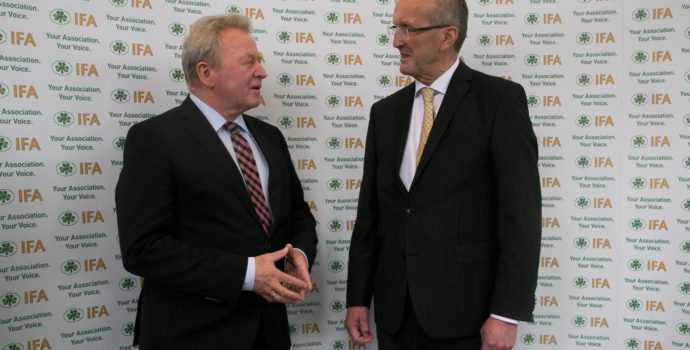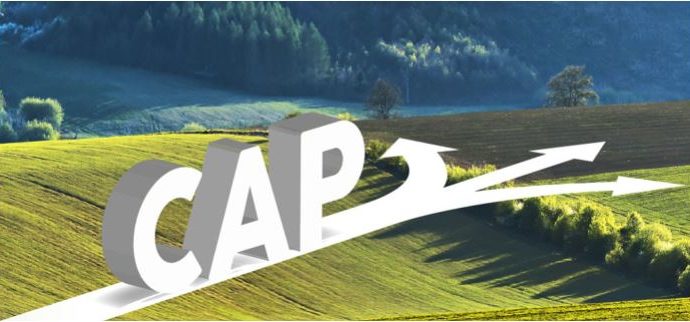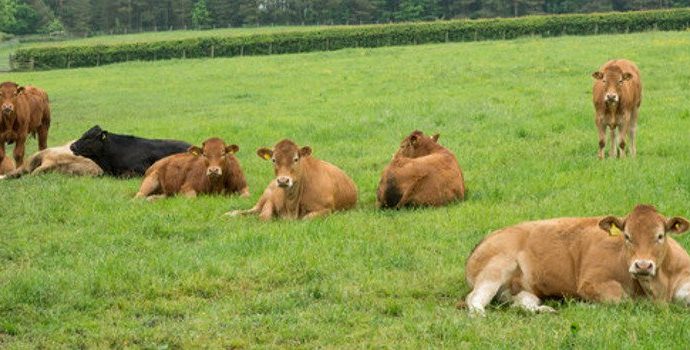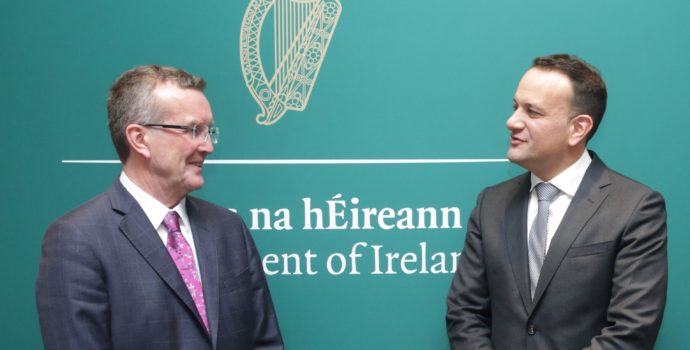IFA President Meets Head of EU Agriculture Council in Brussels
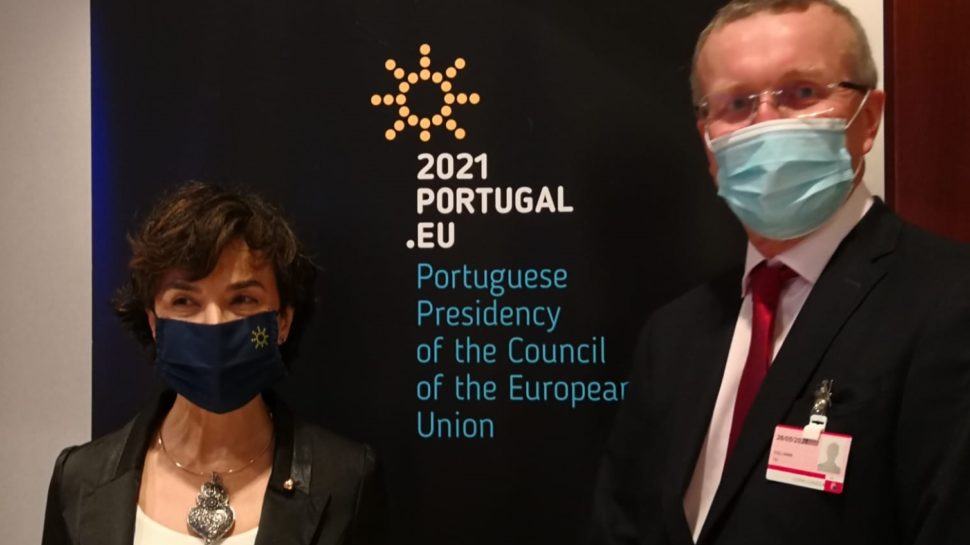
IFA President Tim Cullinan met with the President of the EU Council Maria do Céu Antunes this morning in Brussels ahead of the EU Agriculture Council of Ministers meeting.
Ireland will be represented at the Council of Agriculture meeting by Minister Charlie McConalogue.
“This is the first big test for Minister McConalogue. It’s vital he stands up for Irish farmers and is prepared to hold out for a better deal. There’s another month left in the Portuguese Presidency and no deal is better than a bad deal,” he said.
Tim Cullinan, who was acting in his capacity of First Vice President of the European umbrella farm organisation COPA, stressed that the so-called Eco Schemes had the potential to impact severely on farm incomes.
“If the EU were serious about more environmental ambition, they should put up more funding instead of taking 20% to 30% of every farmer’s existing Basic Payment,” he said.
“We have no option other than to keep these so-called Eco Schemes to a minimum as it is clear that they will cost farmers money and compound the impact of convergence on farmers with higher per hectare payments,” he said.
“It’s very important that countries which have committed a lot of their Pillar II payments to environmental initiatives, including Ireland, are given credit for this when it comes to finalising their Eco Scheme percentage,” he said.
He also stressed the need to ensure that the conditions for eligibility (GAECS) were practical and do not impact on commercial agriculture including on peat lands.
“European farmers have to comply with numerous conditions to receive their payments and these are being ratcheted up again as part of this reform. Farmers are being asked to do more and more for less money,” he said.
Mr. Cullinan said he would be having a number of other meetings in Brussels later today and tomorrow as the ‘jumbo’ Trilogue and the Council of Ministers meetings takes place.
“This is a hugely important week for Irish agriculture as the outcome of CAP reform will decide the future viability of thousands of farmers,” he said.
“At present, only one-third of farmers in Ireland are classed as viable. This redistributive effect of this reform is likely to reduce the number of viable farmers. It is counter to all logic,” he said.

